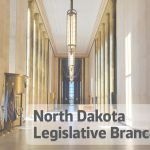Legislative Overview – February 13, 2025
On Thursday, February 13th, both chambers convened to continue legislative business. The Senate completed its work in one afternoon session, while the House required both an afternoon and an evening session. Lawmakers discussed various topics, including gaming, racing, and department appropriation bills. Due to extended debates, the House completed debate & voting on their first 13 bills during the afternoon session before recessing until 5:30 p.m. to address the remaining 13 items on the agenda, adjourning at nearly 7:45pm.
Summary of Sessions in the House & Senate include:
8 Senate Bills Passed and awaiting House Response: SB2177, SB2200, SB2201, SB2209, SB2289, SB2353, SB2356, & SB2369. Those that failed included: SB2347. No Bills Withdrawn.
9 House Bills Passed and awaiting Senate Response: HB1002, HB1004, HB1008, HB1010, HB1021, HB1106, HB1139, HB1268, HB1278, HB1305, HB1415, HB1464, HB1525, HB1540,& HB1566. Those that failed include: HB1282, HB1284, HB1286, HB1382, HB1536, HB1570, HB1590, HB1607 & HCR3012. No Bills Withdrawn.
The Bills we are tracking regarding the business world include:
SB2177: https://ndlegis.gov/assembly/69-2025/regular/documents/25-0947-03000.pdf
This Bill proposes the creation of the Animal Agriculture Facility Infrastructure Fund in North Dakota. The fund will allocate a portion of sales, gross receipts, and use tax revenue to counties for infrastructure projects related to animal agriculture facilities. The tax commissioner will certify eligible expenses, and counties can use the funds for facility-related infrastructure or other expenses. This bill enlarges government involvement by establishing a new funding mechanism. The major benefactors of this Bill would be counties with significant animal agriculture operations, as they would receive funding to support infrastructure improvements related to these facilities. Animal agriculture businesses, such as livestock farms and processing plants, would benefit from enhanced infrastructure, potentially improving operational efficiency and expansion opportunities. Additionally, local economies could experience positive impacts through job creation and increased demand for services. Businesses and residents most negatively impacted by this bill could include those located near expanding animal agriculture facilities, such as residential communities and tourism-related businesses. Potential concerns may involve increased traffic, odor, noise, and environmental effects, which could lower property values and affect quality of life. Small businesses not directly tied to agriculture might face challenges if infrastructure priorities shift to support large-scale animal operations over other community needs.
SB2347: https://ndlegis.gov/assembly/69-2025/regular/documents/25-0647-03000.pdf ~ FAILED
This Bill proposes legalizing historic horse race wagering (HHR) in North Dakota while eliminating pari-mutuel betting on simulcast dog racing. HHR allows bettors to wager on previously conducted horse races using electronic machines, a system that has boosted horse racing industries in other states. The bill also updates regulations on pari-mutuel horse racing, including licensing, compliance, and measures to prevent performance-enhancing substances in racehorses.
This Bill could benefit North Dakota’s horse racing industry by increasing revenue and attracting investment in gaming facilities. Gaming operators may see new business opportunities with HHR machines, while state and local governments could gain additional tax revenue. However, the removal of simulcast dog racing bets could impact those who previously wagered on or facilitated these events.
SB2369: https://ndlegis.gov/assembly/69-2025/regular/documents/25-1357-03000.pdf
This Bill proposes changes to sales tax exemptions for nonprofit organizations in North Dakota, particularly those involved in educational, religious, and charitable activities. The bill clarifies that the tax exemption does not apply to sales exceeding $10,000 at events held in publicly owned facilities if fair market rent was not paid. It also restricts exemptions for nonprofits that compete with retailers, such as those maintaining inventory, operating seasonal or permanent retail locations, or soliciting sales through their websites.
The Bill preserves tax exemptions for certain nonprofit activities, including institutions of higher education hosting events, public school districts using event proceeds for approved expenditures, and nonprofit arts organizations presenting live performances. These changes could impact nonprofit organizations, event organizers, and businesses by limiting tax-exempt sales at certain events, potentially increasing costs for some nonprofits while ensuring fair competition for retailers.
HB1464: https://ndlegis.gov/assembly/69-2025/regular/documents/25-0993-02000.pdf
This Bill proposes the creation of a postpartum doula certification program and mandates Medicaid coverage for postpartum doula services in North Dakota. The bill defines certified doulas, outlines certification requirements, and allows the Department of Health and Human Services to regulate and list approved certification organizations. It aims to expand access to postpartum care for new parents by offering emotional and physical support services for up to six months after childbirth. This bill could impact healthcare providers, doulas, and new parents by formalizing postpartum doula services and potentially increasing access to certified professionals. It may also affect state health agencies by requiring them to oversee certification designations and report to Legislative Management on the program’s implementation and impact during the 2025-26 interim.
HB1570: https://ndlegis.gov/assembly/69-2025/regular/documents/25-0673-02000.pdf ~ FAILED
Proposes the creation of a tobacco tax distribution behavioral health fund and establishes tax regulations for electronic smoking devices and alternative tobacco products. The bill outlines procedures for tax collection, transfer, and reporting, aiming to allocate tax revenues to behavioral health programs. Affected stakeholders include tobacco retailers, distributors, and behavioral health service providers. The bill could increase regulatory oversight and funding for public health initiatives.
~ This is a great time to share a reminder about the importance of staying engaged and informed about legislative developments, even if they don’t seem to directly impact you. The bold print descriptions we’ve provided clearly outline the potential effects of each bill, identifying the stakeholders who would be most obviously impacted. We’re attempting to make it easier for readers to understand the broader implications and connect the dots to people in their lives who might be affected.
Encouraging you to think beyond your personal circumstances and consider others is a powerful call to action. Reaching out to inform someone who may be impacted by a bill is a meaningful way to foster community awareness and engagement. Additionally, suggesting that they become members here to access information firsthand is an excellent way to empower them with knowledge and encourage proactive involvement. After all, that is our primary goal at NDBU.
This approach not only builds a more informed community but also strengthens the collective voice on important issues. We’ll keep emphasizing these points in our messaging—and we hope it’s an effective way to inspire action!
Jan Wangler, Executive Director 


